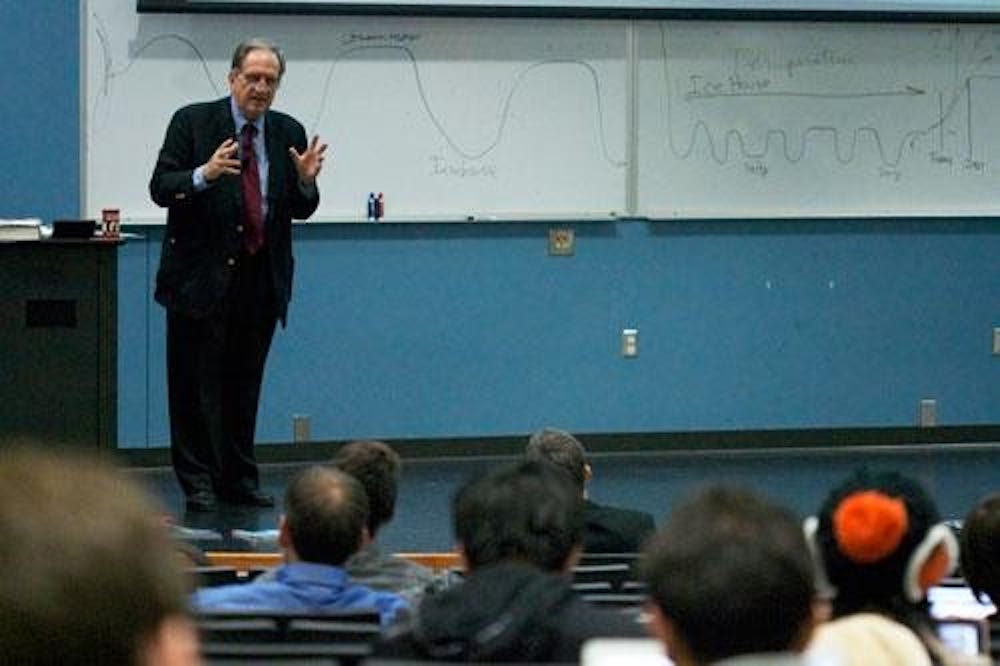
NBC Correspondent Bill Blakemore
The Humanities Center, in coordination with the Department of Media, Journalism and Film welcomed former ABC News correspondent Bill Blakemore to Miami University Monday through Wednesday to speak on "Global Warming: Three Talks in Psychology, Journalism and Film."
Blakemore began his career with ABC News in 1970, he covered several major conflicts including the recent wars in Iraq and Afghanistan. Appointed Rome Bureau Chief in 1978, Blakemore covered the pontificate of Pope John Paul II until his death in 2005 and was part of the ABC News team that won the DuPont-Columbia award for its live coverage of John Paul II funeral.
In late 2004, Blakemore began focusing on climate change and started hosting ABC's program on climate and environmental news, "Nature's Edge," in 2007.
In Monday's lecture, titled "The Many Psychologies of Global Warming," Blakemore identified the many elements in the climate story that have a psychological dimension.
During the lecture, Blakemore was adamant about the fact that he is a professional journalist, and therefore a persistent skeptic, not an activist.
"I am not an activist, I'm not trying to slow down global warming one second or save a single species, but trying to report," Blakemore said. "The only thing I am an activist for is rigorous journalism and improving the quality of the conversation."
One of the angles from which Blakemore looked at global warming was the inter-generational perspective.
"My generation has left you young students with an ungodly mess, and we are sorry," Blakemore said. "I want to pass along as much [information] as I can."
In the second of Blakemore's lectures, titled "Global Warming and Journalism: Great Story, Greatest Crisis," Blakemore discussed how journalism covers global warming and why it has proved to be such a difficult topic to cover.
It is such a hard story to cover because there has never been one like it before, he said.
Enjoy what you're reading?
Signup for our newsletter
"This is a great story, but it is grossly under-covered," Blakemore said. "It couldn't be more consequential on what scientists have been telling us for a long time. [The world's climate scientists tell us that] It is extraordinarily dangerous and already happening."
Blakemore's third lecture, "Stanley Kubrick's 'The Shining,' Great Art, and Global Warming."
Blakemore began the lecture Wednesday with an epigram: "the past simply does not exist. Except in one and only one place, and that is the present tense instant of your mind."
This "truism," Blakemore called it, guided the entire lecture. Kubrick's films, he suggested, have always been panoramic and universal in their approach to art. This is to say Kubrick was not only telling an immediate story- in this case, about a man who tries to kill his family in "The Shining," but also making references to larger events Americans regard as too horrible to think about: The Holocaust, The massacre of Native Americans in early America, and a male dominated society and its dangers in relation to "The Shining."
Blakemore said Kubrick purposefully constructed these references to convey to the viewer they should think about these horrors sometimes, as to not allow them to continue.
In "the jump" as Blakemore called it, to connect the uthe film to Global Warming, he suggested that Global Warming is becoming another atrocity civilization has allowed, but "no one meant for it to happen."




